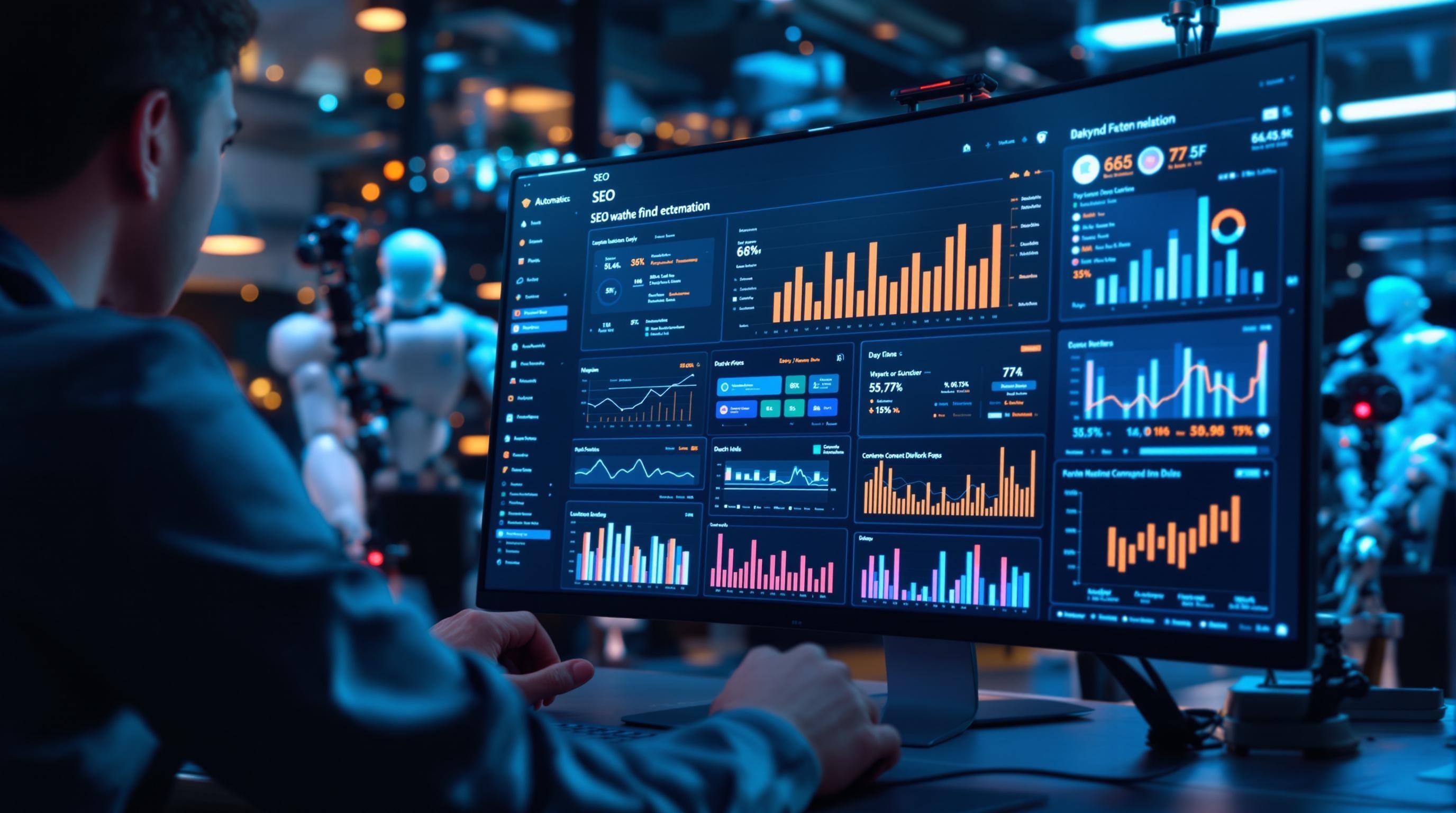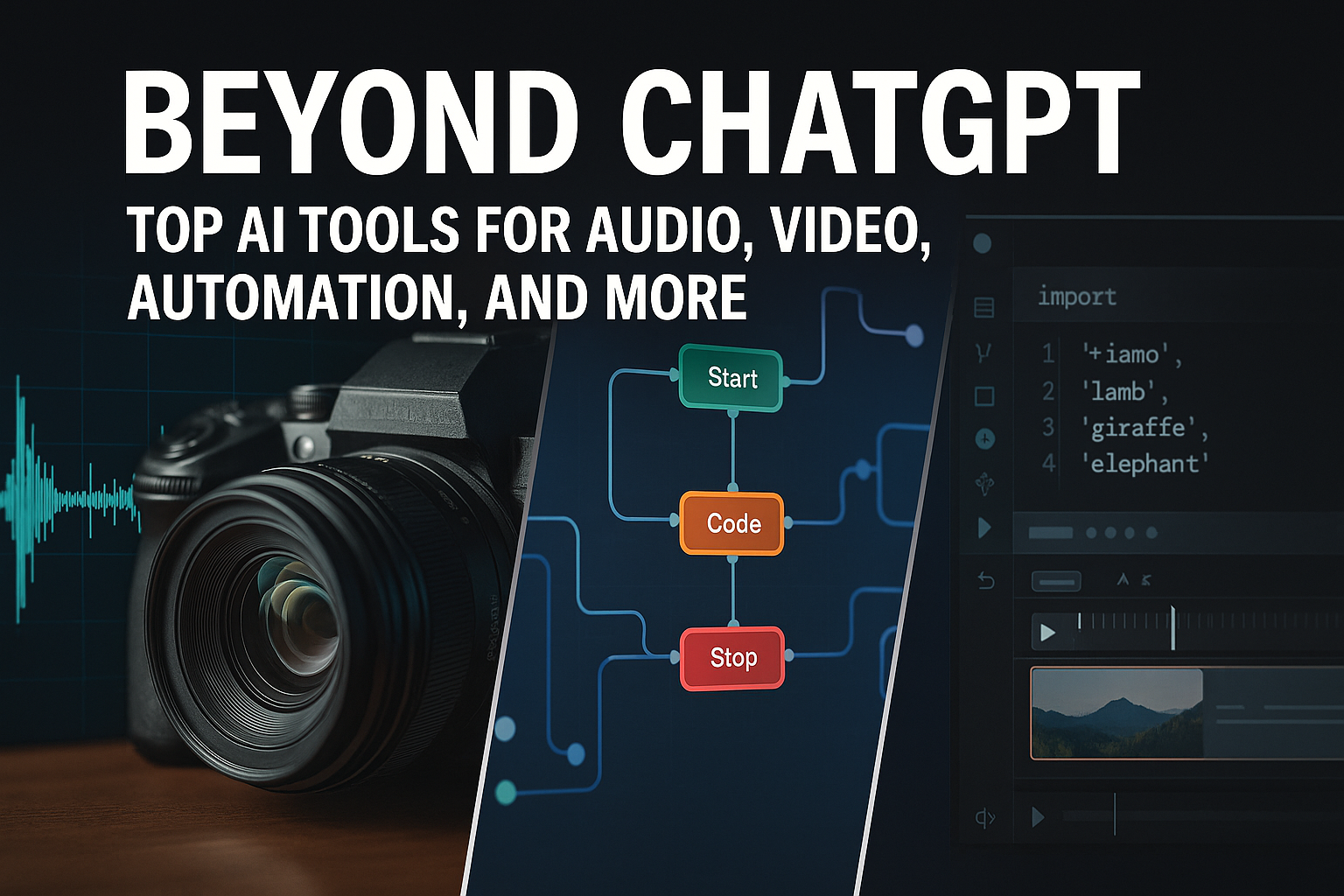Revolutionizing SEO: How Artificial Intelligence is Reshaping Search
Search Engine Optimization (SEO) is the pivotal practice of enhancing your website's visibility on search engines, driving valuable organic traffic – the lifeblood of online success. The SEO landscape is undergoing a seismic shift, with artificial intelligence (AI) at its core. AI is not merely a trend; it's reshaping how search engines interpret, rank, and deliver content, demanding that marketers adapt to maintain their competitive edge and online presence.
The advantages of integrating AI into SEO are compelling. AI streamlines repetitive tasks, significantly boosting efficiency. It delivers richer insights through advanced data analysis, providing a deeper understanding of user behavior and search dynamics. Ultimately, this translates to tangible improvements: higher rankings, increased traffic, and improved conversion rates. The current state of AI in SEO is dynamic, with tools capable of performing sophisticated keyword research, content generation, and backlink analysis, even predicting ranking fluctuations. Emerging technologies like generative AI promise to further transform content creation and optimization. This article delves into the practical applications of AI in SEO, offering actionable strategies for immediate implementation.

Decoding the AI Algorithm: Understanding How Search Engines Use Artificial Intelligence
Modern SEO success depends on understanding the inner workings of search engine algorithms. Today's AI-driven algorithms analyze massive datasets – encompassing website content and user interactions – to decipher user intent with unprecedented accuracy. This understanding is paramount for delivering rel
evant search results. Semantic search is a cornerstone of this process, enabling search engines to grasp the context and meaning behind queries, going beyond simple keyword matching. This allows for the delivery of results that genuinely address user needs, even without exact keyword matches.
Natural Language Processing (NLP) is crucial, empowering search engines to interpret human language, refine keyword research by identifying related concepts, and guide content creation towards a natural, user-friendly style. Moreover, machine learning (ML) algorithms continuously learn and adapt based on user behavior. By analyzing click-through rates, dwell time, and search refinement patterns, these algorithms fine-tune ranking factors in real-time. Google's RankBrain exemplifies this, leveraging machine learning to comprehend search queries and rank results based on relevance and user satisfaction. The constant evolution of AI algorithms underscores the need for SEO professionals to remain informed about the latest advancements.
AI-Powered SEO Tools: A Deep Dive into Automation and Optimization
The proliferation of AI has spurred the development of AI-powered SEO tools, each designed to automate and optimize specific SEO processes. Keyword research tools now transcend traditional keyword planners, identifying long-tail keywords with lower competition and higher conversion potential, as well as uncovering emerging trends and keywords through advanced search trend analysis. Sentiment analysis capabilities further enhance these tools, allowing for a deeper understanding of user intent behind specific keywords.
AI-driven content creation offers significant advantages. While fully AI-generated articles raise ethical considerations, these tools excel at generating outlines, brainstorming topic ideas, and producing initial drafts. However, human oversight remains paramount to ensure accuracy, originality, and overall quality. Numerous AI-driven content optimization tools also exist, analyzing content for readability, keyword density, and other crucial SEO factors, providing actionable recommendations for improving content ranking and audience engagement. Furthermore, tools such as QuillBot and Grammarly can help refine writing quality.
AI significantly improves backlink analysis, identifying potential link building opportunities by scrutinizing competitor backlink profiles and pinpointing relevant websites within specific niches. These tools also evaluate backlink quality, helping identify and avoid potentially harmful links. For technical SEO, AI-powered tools conduct comprehensive audits, identifying site errors, broken links, and other issues that can impede SEO performance, while offering recommendations for improving website speed, mobile-friendliness, and overall structure. Moreover, AI facilitates predictive analytics, forecasting traffic patterns and potential ranking changes based on historical data, enabling proactive strategy adjustments. Finally, AI enhances competitor analysis. Tools, often enhanced with AI, like Semrush and Ahrefs, provide valuable insights by analyzing competitor strategies, identifying top-ranking keywords, and uncovering content gaps.

The Human Element: Balancing AI with E-E-A-T and Ethical SEO Practices
Despite the immense potential of AI in SEO, the human element remains indispensable. Google's E-E-A-T (Experience, Expertise, Authoritativeness, and Trustworthiness) guidelines underscore the significance of creating high-quality content that embodies these characteristics. In the age of AI, E-E-A-T assumes even greater importance.
AI can bolster E-E-A-T by identifying and rectifying content gaps, verifying factual accuracy, and optimizing user experience. For instance, AI can analyze content to pinpoint areas lacking in expertise or authority, and aid in finding trustworthy sources to substantiate claims and enhance content accuracy. However, it's critical to remember that AI is a support tool, not a replacement for human insight and judgment. The ethical dimensions of using AI in content creation demand careful consideration. Over-reliance on AI can result in bland, unoriginal content lacking the unique perspectives that readers value.
While Google's stance on AI-generated content is evolving, content predominantly created by AI without substantial human contribution is often viewed as lower quality. Original research and unique insights are paramount for distinguishing content from the vast sea of AI-generated material. The focus should remain on delivering value to the audience by sharing personal experiences, undertaking original research, and presenting unique viewpoints that AI cannot replicate. Human expertise and creativity are still vital for creating content that resonates with readers and earns their trust.
Beyond Keywords: AI and the Future of Search – Voice, Mobile, and Personalization
The future of search extends beyond traditional keyword-centric SEO. Voice search is gaining prominence, with AI playing a crucial role in understanding and responding to voice queries. Optimizing for voice search involves using natural language and conversational keywords that mirror human speech patterns. This means directly answering questions and providing concise, informative content readily understood through voice assistants like Google Assistant or Amazon Alexa. AI also powers personalization, delivering customized search results based on user preferences, location, and past search behavior. By analyzing this data, AI provides more relevant and valuable results, enriching the overall search experience.
Mobile-first indexing is another essential element of modern SEO. Google prioritizes the mobile version of a website for indexing and ranking. AI aids in optimizing the mobile user experience by analyzing mobile site speed, usability, and design. Ensuring a mobile-friendly website with a seamless user experience is critical for achieving improved rankings. Furthermore, AI enhances local SEO strategies. AI helps businesses optimize their online presence for local search by analyzing local search trends, identifying relevant local keywords, and effectively managing online reviews, boosting their visibility in local search results and attracting more local customers.

Implementing AI SEO: A Practical Guide for Driving Results
Successfully integrating AI into an SEO strategy requires a pragmatic approach. Begin by selecting tools aligned with specific needs and budget constraints. Start by experimenting with free AI tools to gain familiarity with their capabilities before committing to more advanced solutions. Google AI Studio and Hugging Face are excellent starting points. Invest in training to ensure your team can effectively utilize these tools and seamlessly integrate them into existing workflows.
Consider these illustrative case studies: A small e-commerce business leveraged AI-powered keyword research to identify high-potential long-tail keywords, resulting in a 30% surge in organic traffic. Similarly, a content marketing agency employed AI to generate content outlines and optimize existing articles, achieving a 20% improvement in search rankings. Follow these steps for AI-driven SEO implementation: Establish clear, measurable goals for AI SEO efforts, such as boosting organic traffic, improving search rankings, or generating more leads. Employ analytics tools like Google Analytics to meticulously track progress and make data-driven adjustments to your strategy. Continuously monitor the performance of AI tools to ensure they are delivering the anticipated results.
To accurately measure the ROI of AI SEO initiatives, track key metrics, including organic traffic, search rankings, lead generation, and conversion rates. Compare these metrics before and after AI implementation to quantify the value of your investment. AI SEO is a strategic investment, and demonstrating its return is crucial. Employ this checklist to facilitate implementation: Define SEO goals, research and select appropriate AI-powered SEO tools, train your team effectively, integrate AI into the SEO workflow, rigorously track progress and measure ROI, and adapt the strategy as needed.
The Future is Intelligent: Embracing AI for Long-Term SEO Success

In conclusion, embracing AI in SEO is not just an option but a necessity for sustained success. AI presents significant opportunities for automating tasks, enhancing insights, and optimizing overall SEO performance. Future trends point toward the rise of generative AI, enabling increasingly sophisticated content creation and optimization. As search algorithms become progressively intelligent, SEO professionals must proactively adapt to these changes to maintain their competitive edge.
I encourage active experimentation with AI tools and the sharing of experiences within the community. Visit Best AI Tools to discover innovative AI platforms. While AI offers exceptional potential, it is crucial to remember that it serves to augment, not replace, human SEO expertise. By synergizing AI with human creativity and judgment, new levels of SEO success can be unlocked, achieving ambitious online marketing objectives.
Keywords: AI SEO, SEO AI, artificial intelligence SEO, AI for SEO, SEO optimization with AI, AI SEO tools, SEO automation, machine learning SEO, future of SEO, semantic search, content optimization AI, keyword research AI, AI content creation, AI-powered SEO platform, E-E-A-T and AI SEO
Hashtags: #AISEO #SEOAI #ArtificialIntelligence #SEOTips #DigitalMarketing
For more AI insights and tool reviews, visit our website www.best-ai-tools.org, and follow us on our social media channels!
X (Twitter): https://x.com/bitautor36935Instagram:



